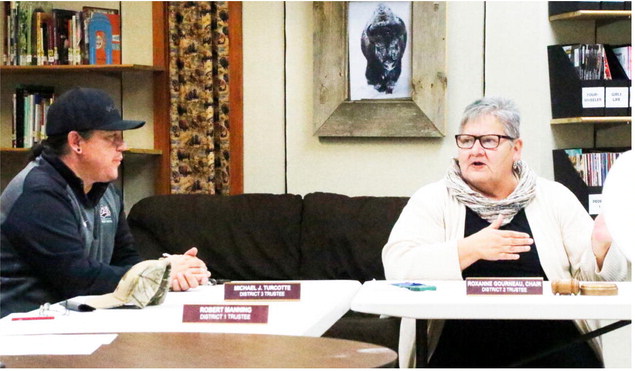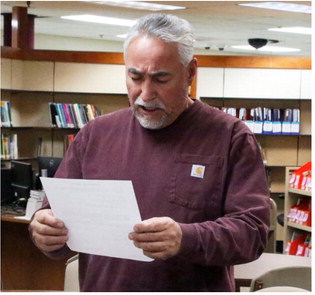MSU Poll Finds Westerners Worried About Coronavirus’ Financial Impacts But Working To Prevent Spread
A recent online poll of residents in Colorado, Montana, North Dakota and Utah found that respondents are supportive of coronavirus pandemic restrictions but are also worried about its economic ramifications.
David C.W. Parker, professor of political science at Montana State University, said the poll conducted in April found that while respondents back the restrictions imposed by local and state governments, people are also worried about the impacts to the economy and personal finances from the coronavirus.
“The biggest worry and concern that we found is about the health of the economy rather than a collapse of the health care system,” Parker said. “Also, our respondents expressed more worries for the health and safety [of] people they know rather than for themselves.”
The questionnaire answered by 2,220 respondents was part of a poll conducted by political scientists at MSU and the University of Denver and administered online to residents in the four states between April 10 and April 27. The survey was weighted to reflect demographics in the respective states.
The first section of the poll, detailed in this release, focused on public health and economic fallout related to the coronavirus pandemic and resulting restrictions. The first section also investigated respondents’ willingness to adapt to public health directives and their level of support for various public policy actions to address the impacts of the virus. [The second section of the poll focused on political opinions during the time period and has not been released as of presstime Tuesday.] Parker said the survey revealed that relatively few of the 2,220 respondents had contracted the virus at the time, and only a small number of people had a problem accessing health care during the pandemic.
“A larger percentage have experienced economic fallout from the coronavirus, specifically in lost income and wages,” Parker said. “Between 15 percent and 20 percent of adults in each state have been laid off or furloughed due to the coronavirus.”
One result that surprised the pollsters was that there was a great deal of agreement about social distancing and hygienic practices, regardless of political affiliation.
“We didn’t see significant divides based on partisanship in social distancing and hygiene practices,” Parker said “We didn’t see partisan divides in support for stay-athome orders. People appear to be willing to take precautionary measures to prevent the spread of coronavirus and would like government guidelines and enforcement. However, they also expect government to take unprecedented and dramatic steps to mitigate economic loss.”
The poll was administered by Parker, MSU HELPS Lab Director Eric Raile, and Elizabeth Shanahan, all professors in the Department of Political Science in the MSU College of Letters and Science, as well as Pavielle Haines of the Center on American Politics at the University of Denver. In all, 503 Coloradans responded to the survey from April 10- 19; 738 Montanans responded to the survey April 10-27; 481 North Dakotans responded April 10-25; and 498 Utahns responded April 10-15.
Parker said the four states surveyed were selected for their geographical proximity yet cultural and political variances. The states had different restrictions and degrees of stay-at-home orders, including no orders in North Dakota. He said the political scientists thought that with many respondents at home and on computers, often consuming a great deal of news-related content, the poll could capture a snapshot of a distinct period of regional history. Parker said the pollsters sought to build upon successful polls that the MSU team had conducted both before and after the 2018 elections.
“There are a lot of different dimensions in these four states that have geographical similarity,” he said.
The poll was funded by the Office of the Vice President of Research, Economic Development and Graduate Education at MSU, the Department of Political Science at MSU, and the Center on American Politics at the University of Denver. Data and more information may be found at http://helpslab.montana. edu/.
Key findings from the poll were:
•Most people report that the coronavirus is a source of significant stress in their lives (“moderately” or “very” stressful), with women reporting higher levels of stress than men. Younger adults tend to report higher levels of stress and disruption associated with the coronavirus. People are generally not very worried about being able to get tested or treated — about 60-65 percent express little or no worry about access to tests if they develop symptoms of the disease. People are more concerned that someone in their social circle will become seriously ill than they are concerned that the health care system will become overloaded.
•About one-third to onehalf of people across all four states are “moderately” or “very” worried about local availability of health care services because of the coronavirus, while roughly three-quarters of people fear the collapse of small businesses in their state and a national economic depression.
•People are highly attentive to news on the coronavirus, with television being the most important source. People are hungry for information about many aspects of the pandemic, but the most important information they seek is about cures and vaccines. Information about medical supplies is the second- most important type of information being sought. People overall are much more interested in what scientists are saying about the coronavirus than what political, business and religious leaders are saying.
•The vast majority of people appear to be complying with public health guidelines. Unnecessary social interactions and trips outside the home are down for most people, and most people are being more proactive about hygiene.
•Overall, people are looking for government intervention. Majorities of 65 percent or greater would support a federal stay-at-home order. A majority of Republicans, Democrats and Independents in all four states support such a federal directive. This suggests that although protestors advocating for the reopening of the economy are gaining a great deal of media attention, they represent a small minority. Views about whether government stay-at-home orders were necessary to achieve compliance from the public basically corresponded to the current state-level policies.
People are also looking to the government to address the economic fallout of the pandemic. Large majorities, regardless of partisanship, support government financial assistance to individuals and small businesses. People are much less convinced about financial assistance for large corporations.

